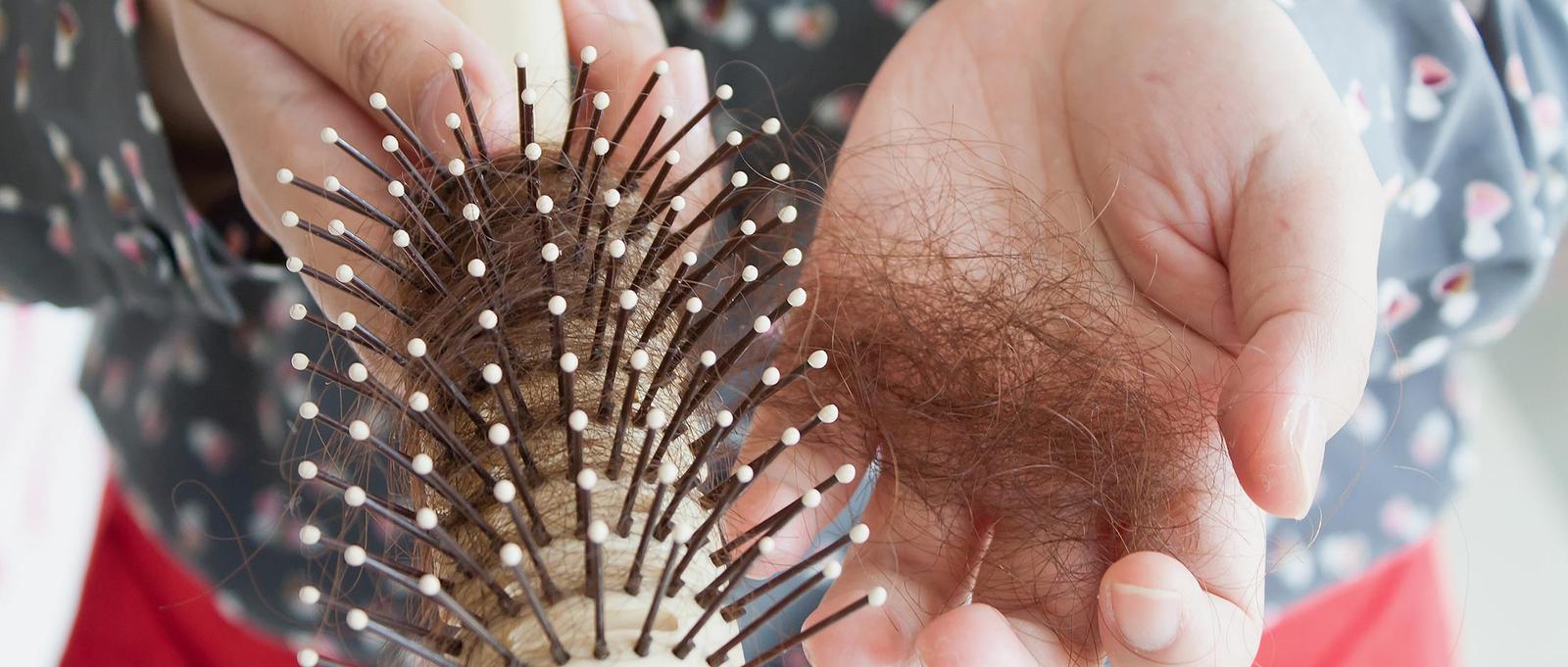
Causes courantes des démangeaisons du cuir chevelu
Peer reviewed by Dr Sarah Jarvis MBE, FRCGPLast updated by Dr Jessica Garner, MRCGPLast updated 8 Feb 2019
Répond aux besoins du patient lignes directrices éditoriales
- TéléchargerTélécharger
- Partager
- Langue
- Discussion
Si vous dites à quelqu'un que vous vous grattez la tête, avec un peu de chance, il supposera que vous êtes plongé dans une sérieuse réflexion. Cependant, il est plus probable que vous souffriez en fait de démangeaisons du cuir chevelu. Il existe de nombreuses raisons pour lesquelles notre cuir chevelu s'irrite, mais voici quelques causes courantes et ce que vous pouvez faire pour y remédier.
Dans cet article :
Poursuivre la lecture ci-dessous
Dermatite séborrhéique
Seborrhoeic dermatitis causes an itchy and sore rash on the scalp. The rash is usually red in colour, but can also appear as white scales. The scales have a tendency to flake off, so many people assume it is just dandruff.
The exact cause of this condition is unclear but it is thought to be due to an overgrowth of a common yeast skin organism. Seborrhoeic dermatitis tends to flare up in the winter months, and can be precipitated by stress. It runs in families and is more common in men. It is best treated with regular use of a medicated shampoo (either a traditional anti-dandruff shampoo or an anti-fungal shampoo such as ketoconazole, available from your pharmacist).
What is dandruff?
Teigne
Because of the name, many people assume that tinea capitis, or scalp ringworm, is caused by a parasitic worm. In fact, it's a common fungal infection. It can cause dry scaly patches within the hair or a classical red ring-like appearance. Sometimes the infection can cause damage to the hair and result in patches of hair loss.
It is contagious and may be passed on via hairbrushes, towels and even the backs of chairs. It usually needs to be treated with oral antifungal tablets. Antifungal shampoos do not tend to work, because the fungal infection spreads down into the hair follicles, where shampoos cannot reach.
Poursuivre la lecture ci-dessous
Psoriasis
Psoriasis is a skin condition that often affects the scalp. About half of people with plaque psoriasis - the most common form of the condition - have psoriasis on their scalp as well. However, a few people develop psoriasis on their scalp with no plaques anywhere else on their bodies.
Like fungal infections, scalp psoriasis causes a dry, scaly itchy rash and can sometimes be tricky to distinguish from other scalp conditions. It typically affects the hairline at the back of the head and can cause quite marked shedding of heavy 'dandruff'.
It is usually treated with a combination of shampoos, scalp applications and sometimes more specialist treatments. The first-line treatment for scalp psoriasis is often a coal-tar based shampoo. Topical steroid treatments are recommended more often for psoriasis affecting the scalp rather than other parts of the body.
Poux de tête
Head lice don't just affect children! The lice are small grey-brown insects that live on the scalp. They are most commonly spread by head-to-head contact, and can cause itching if your scalp is sensitive to the saliva or faeces of the lice. Over-the-counter head lice treatments are readily available from your pharmacist.
Poursuivre la lecture ci-dessous
Pellicules
Pityriasis capitis, or dandruff, is the most common cause of a dry flaky scalp and affects many of us. It is caused by dead skin cells being shed more rapidly than usual and, although it is not harmful, can be irritating and embarrassing. Excessive use of some hair products can lead to dandruff. Avoiding triggers and using anti-dandruff shampoos usually solve this problem.
If you are struggling with itchy or sore patches on your scalp, then make sure you see your GP for further advice.
Patient picks for Hair and scalp

Santé de la peau, des ongles et des cheveux
Comprendre la perte de cheveux chez la femme
Nous, les femmes, souffrons de douleurs menstruelles, d'accouchement et de ménopause. Mais au moins, contrairement aux hommes, nous n'avons pas à craindre de devenir chauves. Ou bien est-ce le cas ? Même si elle est moins fréquente chez les femmes, la calvitie n'est pas l'apanage des hommes.
par le Dr Sarah Jarvis MBE, FRCGP

Santé de la peau, des ongles et des cheveux
Pourquoi la calvitie peut-elle sérieusement affecter votre santé mentale ?
La plupart des hommes commencent à remarquer un amincissement des cheveux ou un recul de la ligne d'implantation des cheveux à partir de la vingtaine. Bien que la perte de cheveux chez l'homme soit incroyablement courante, elle peut être très pénible et affecter négativement l'estime de soi. Le Dr Max Pemberton étudie l'impact psychologique de la calvitie et ce qu'il faut faire si vous perdez votre confiance en vous en même temps que vos cheveux.
by Dr Max Pemberton, MRCPsych
Poursuivre la lecture ci-dessous
Historique de l'article
Les informations contenues dans cette page ont été évaluées par des cliniciens qualifiés.
8 février 2019 | Dernière version

Demandez, partagez, connectez-vous.
Parcourez les discussions, posez des questions et partagez vos expériences sur des centaines de sujets liés à la santé.

Vous ne vous sentez pas bien ?
Évaluez gratuitement vos symptômes en ligne
Inscrivez-vous à la newsletter destinée aux patients
Votre dose hebdomadaire de conseils santé clairs et fiables, rédigés pour vous aider à vous sentir informé, confiant et maître de la situation.
En vous abonnant, vous acceptez notre politique de confidentialité. Vous pouvez vous désabonner à tout moment. Nous ne vendons jamais vos données.